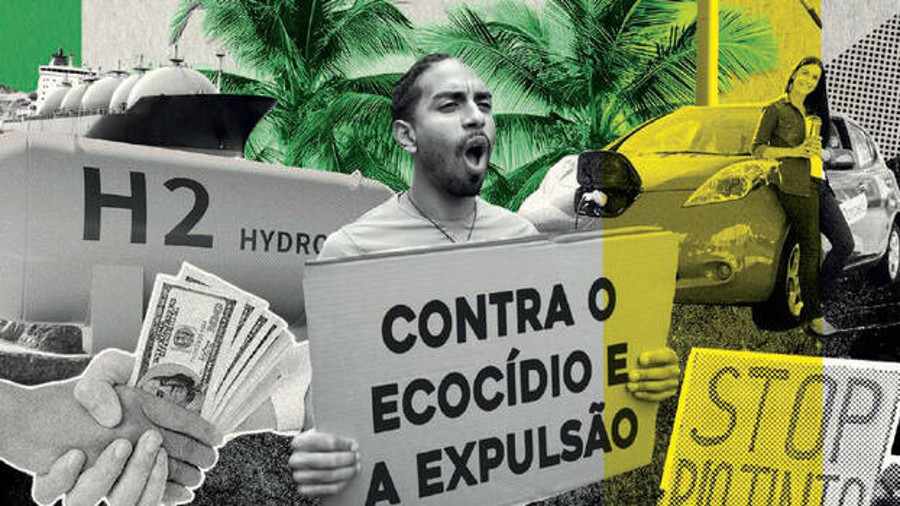|
Green facade, dirty business Our research examines German public and private actors and asks: At what price does Germany ensure that it does not lag behind in the global energy race? Following the war in Ukraine, Germany intensified its efforts to secure energy sources abroad through direct investments and bilateral economic agreements. While these arrangements are presented as mutually beneficial exchanges, they are often associated with expropriation and the externalization of ecological, social, and economic costs to the Global South. The poorest bear the greatest burden All six case studies demonstrate that power relations remain essentially unchanged, with the most disadvantaged population groups bearing the greatest burden. From lithium mining in Serbia to hydrogen projects in Namibia—a country with which Germany shares a troubled colonial history, including genocide—the pattern of resource extraction with minimal local benefits continues. The measures in Germany and the EU to strengthen supply chain due diligence are important steps to ensure that human rights violations and environmental destruction along supply chains do not go unpunished. We support negotiations on a binding treaty at the UN level to guarantee human rights and environmental standards in global business activities. However, we must recognize that instruments that oblige transnational corporations to exercise due diligence along their supply chains are inherent in the capitalist system and do not fundamentally challenge the hierarchies and unjust power structures of global trade. Energy transition instead of raw material exploitation Furthermore, we cannot overlook the disturbing relationship between the fossil fuel industry and the war industry—a connection that serves as further evidence of why we must transcend capitalist modes of production. The militarization of resource-rich regions and conflicts over control of energy sources demonstrate how deeply intertwined these sectors continue to be, perpetuating cycles of violence and environmental destruction. The authors of our case studies are scholars, activists, and experts who either have long-standing relationships with local communities affected by the social and environmental impacts of resource extraction or whose research addresses colonial patterns in the energy transition. Their analyses do not aim to deny the need for an energy transition, but rather call for a fundamental restructuring of how this transition is conceived and implemented. We are deeply grateful for their contributions to this publication and the discussions with them over the past few months. The idea for this publication emerged in April 2024 during an international meeting of Rosa Luxemburg Foundation colleagues working on socio-ecological transformation. During our discussions, it became clear that the expansion of renewable energy infrastructure and the extraction of critical minerals to generate this energy are putting increasing pressure on communities, their livelihoods, and their environments around the world. Furthermore, it became clear that German development policy and German capital are incentivizing actors in many regions to pursue an energy transition agenda that primarily follows their own logic and serves their own interests. A cross-border project involving five RLS regional offices Therefore, we formed an international editorial team with colleagues from our offices in Argentina, Brazil, Germany, Mexico, and Serbia to collaborate on a publication that sheds light on the role of German politics and capital in neocolonial extractivism. As a German political foundation, we see it as our task to raise awareness about these processes and provide information that can be translated into parliamentary and civil society action. The case studies were selected based on the existing networks of our regional offices and their commitment to socio-ecological change and climate justice. The publication lists the case studies according to the scale and intensity of current extractivism, starting with long-standing mining projects in Mexico, followed by rapidly expanding nickel mining in Indonesia, and finally, planned lithium mining in Serbia. We then examine projects where the extractivist tendencies are less obvious, as they primarily produce renewable energy. Here, our focus is on green hydrogen, beginning with an analysis of the Hyphen megaproject in Namibia and later examining the impact of policy measures to increase green hydrogen production in Chile and Brazil. These projects are in various planning and implementation phases, particularly the resource-intensive conversion of green hydrogen into ammonia for export. With a foreword by Sabrina Fernandes, this collection invites readers to imagine alternative ways of addressing the climate crisis—ways that focus on global justice, democratic participation, and ecological restoration, rather than simply replacing one form of resource extraction with another. The energy transition we need is more than a technological shift; it requires a transformation of the power relations that have historically shaped our world. china https://www.rosalux.de/publikation/id/53868/gruene-fassade-dreckige-geschaefte Back |
|
||||||
|
|||||||




